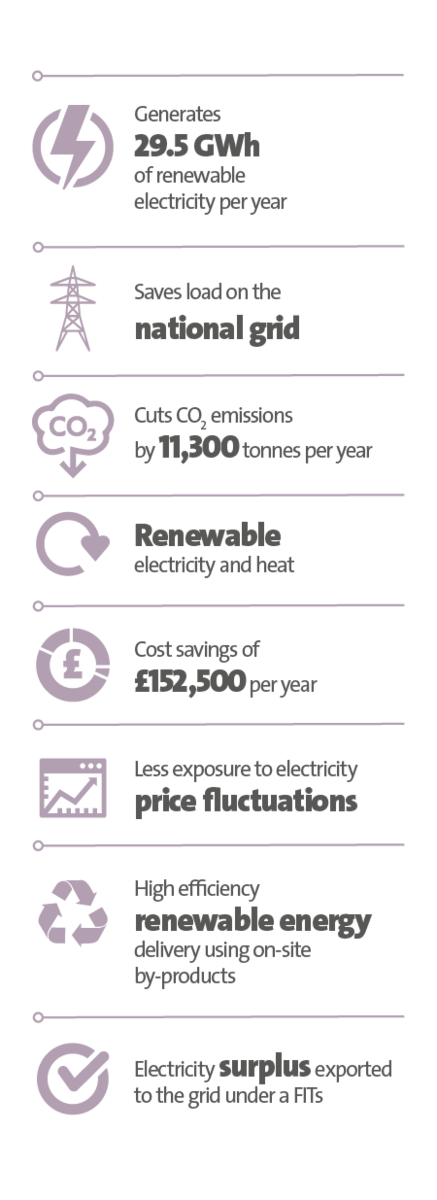Supporting Cannington Cold
Stores with renewable energy generation
Cannington Cold Stores operate a 9,000 pallet facility in Bridgwater and works with some of the country’s biggest food and drink retailers and manufacturers. It provides frozen, chilled and ambient storage: frozen storage down to -25oC, chilled storage from + 2 to +10 oC and ambient storage from +10 to +15 oC upwards. From here food is distributed throughout the UK, Europe and worldwide.
The challenge
Cannington Cold Stores supports the promotion of renewable energy to counter climate change. With this aim, Cannington looked for a biogas Combined Heat and Power (CHP) solution fuelled by feeding waste food through an anaerobic digester to provide biogas. Electricity and heat was required for site usage with the capability to export electricity to the grid when appropriate.
The solution
The Veolia engineering and project management team assisted Cannington Cold Stores with the design and installation of a modular biogas-fired CHP system designed to provide the required electricity and heat flows. To provide the necessary biogas, fuel Cannington invested in developing a biogas digester/process system.
Generation of electricity and heat is derived from five CHP with a total capacity of 3.37MWe that provide the sites electricity.
Heat from the CHP is fed to the treatment tanks which also helps to speed up the bacterial digestion of organic matter producing more biogas and increasing waste digestion.
The result is cost savings, greatly reduced emissions and improved carbon footprint and better energy security. Veolia provides year round operational support to ensure the systems operate efficiently.
Food waste comes from all over the South West with a small proportion produced on site. Through strategic partnerships, Cannington Cold Stores recycle their customer’s waste enabling these customers to claim that their waste is providing energy to keep their goods cold when in the cold stores.
Value delivered
Using food waste to generate biogas means that landfill is avoided. This reduces potential methane damage to the atmosphere as each tonne of food waste recycled by anaerobic digestion prevents between 0.5 and 1.0 tonne of CO2 entering the atmosphere.
Do you have a challenge similar to Cannington Enterprises?



